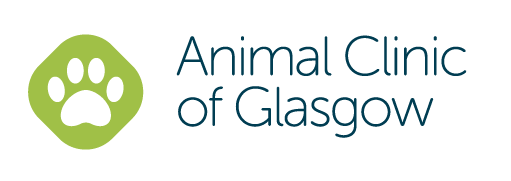Library
-
When the digestive tract is upset, vomiting and diarrhea may result. Since the causes of these symptoms are varied, it's best to consult a veterinarian. Often, a gastrointestinal (GI) diet is recommended to support the digestive tract and ensure the gut gets the nutrients it needs to recover. A bland diet of cooked chicken and rice might be recommended, but it has several limitations and is not appropriate for long-term feeding.
-
Over 60% of cats in North America are either overweight or obese, so paying attention to the balance between activity and calorie intake is important. Nutrient formulation and portion control are the two most important aspects of weight control. Once you have chosen a formula and have calculated a reasonable daily portion based on calorie density, the best way to stay on track and prevent unwanted weight gain is to combine portion control with regular, formal weigh-ins.
-
Veterinarians recognize the relationship between nutrition and the health of the skin and haircoat. It is important to prevent malnutrition, both by preventing deficiencies AND excesses of nutrients. Your veterinarian is the very best source of information and guidance for choosing the most appropriate nutrient profile for your cat.
-
This handout discusses the risks and benefits of feeding commercially prepared fresh, whole-food diets, as well as home-prepared recipes for your cat or dog. Topics highlighted include food safety, nutritional imbalances, and the need to ensure that any diet has been well-researched for nutritional safety and completeness.
-
Cats are obligate carnivores and cannot be vegetarian. Through evolution, cats have become dependent on the specific forms of nutrients found only in animal tissue. Feeding your cat a proper diet is one of the most important aspects to help keep them at optimal health. It is important to keep in mind that the nutritional requirements and dietary preferences change over the course of the cat's lifetime. Your veterinary health care team can help you make good-quality diet choices and determine the correct number of calories your cat needs in a day.
-
The optimal diet varies from species to species, and contains an ideal ratio of the major essential nutrients of proteins, fats and carbohydrates, as well as adequate levels of trace nutrients such as vitamins and minerals. While a recipe for a home-cooked diet may appear to come from a knowledgeable source, ideas about what constitutes the ideal diet for dogs and cats is currently evolving. Your veterinarian can help ensure that your pet's diet is appropriate and healthy.
-
By-products are ingredients commonly found in commercial pet foods and are considered highly desirable by many human cultures. However, there is ambiguity surrounding this term and misperceptions related to overall nutritional value. This article reviews the formal definition of by-products in the pet food industry and highlights the nutritional and environmental benefits they provide.
-
Corn and grain have been included in commercial pet foods for many years. Recently, however, these ingredients have been portrayed in the media as "fillers" that provide little nutritional value to pet foods. Conversely, corn and grain provide a wide range of essential nutrients that support the health of both dogs and cats. This article explores this topic with reference to specific nutritional benefits.
-
In North America, obesity is the most common preventable disease in cats. Just over 60% of domestic cats are overweight. Scientific evidence now shows that fat tissue is not benign; it actively secretes inflammatory hormones and creates oxidative stress, both of which contribute to increased risks for several diseases, as well as a decreased quality of life. Treating obesity as a chronic, inflammatory condition means regular veterinary assessments and strict attention to portion control.
-
Obesity is the most common problem in cats in North America and leads to an increased risk of diabetes mellitus, heart disease, and several types of cancer. Extra body fat causes increased inflammation associated with osteoarthritis. Reducing inflammation and pain can help an overweight cat to regain activity, which in turn can lead to more appropriate weight loss. Obesity can be prevented or reversed when cat owners are aware of calorie intake, body condition, and improving movement or activity.
